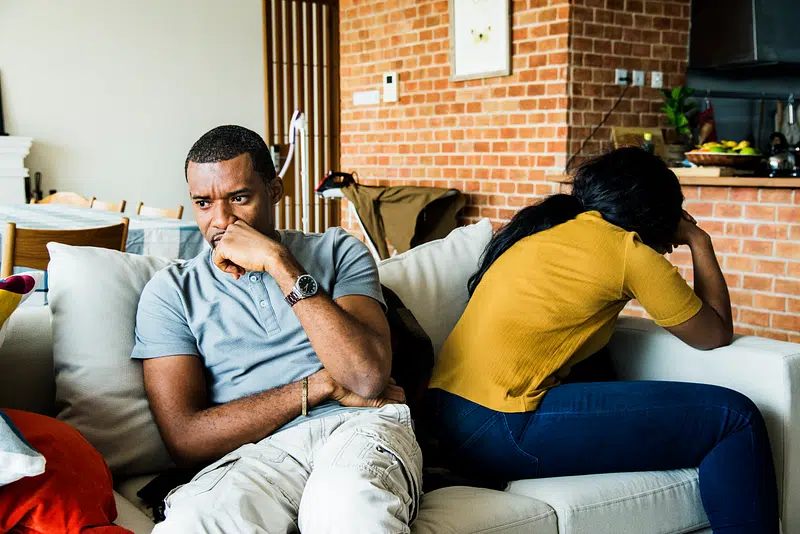What Does It Mean to Be an Enabler?
Being an enabler usually stems from a position of love and a good heart. You’re trying to assist someone you care about—perhaps a partner, friend, or family member—particularly if they have an addiction problem. However, enabling is not about assisting. It’s a behavior pattern where your assistance, while well-intentioned, ultimately shields or even enables someone’s detrimental behaviors.

As therapist Matt Glowiak, PhD, LCPC, says, enabling occurs when your behaviors, meant to take care of someone, end up letting their addiction or hurtful habits persist. It’s not about being a terrible person. Sometimes it’s about needing so intensely to help that you protect them from the very consequences that may spur change in them.
Signs You Might Be Enabling (Even Without Realizing It)
Recognizing enabling behavior can be difficult, especially when your heart is in the right place. Here are some common patterns to look out for:
1. Making Excuses
Covering for someone—calling in sick for them, justifying missed responsibilities, or blaming their behavior on stress—might feel like protecting them. But over time, this can prevent them from facing the real impact of their actions.
2. Neglecting Your Own Needs
When your energy is constantly directed at someone else’s problems, your well-being often suffers. If you’re always putting yourself last and the relationship feels one-sided, it may be a sign of enabling.
3. Avoiding Conflict
It’s natural to want to keep the peace, but avoiding tough conversations can allow unhealthy behaviors to continue. Pretending everything is okay doesn’t make the issues go away—it just delays necessary change.
4. Assuming Their Responsibilities
Doing for someone what they could—and should—do for themselves (such as paying bills, taking care of errands, or keeping up with their responsibilities) can inadvertently perpetuate dependency and inhibit responsibility.
5. Feeling Resentful or Drained
Feeling overwhelmed, underappreciated, or emotionally drained is an obvious indication that the dynamic of the relationship is unbalanced. You may feel trapped in a pattern of giving without receiving much back.
6. Offering Financial Assistance
It’s simple to get money assistance confused with assistance, particularly if your loved one is in a tight situation. But consistently covering bills, bailouts, or habits related to their addiction can eliminate the pressure for them to get help.
How Enabling Affects Your Relationship
Enabling not only impacts the struggling individual, but it also damages you and the relationship as a whole. Addiction tends to instill emotional distance, secrecy, and trust issues. You feel like you’re living on eggshells, walking on eggshells, trying to control everything just to keep things from falling apart.
Financial stress is also prevalent, particularly if addictive behaviors cause poor judgment or neglected responsibilities. Gradually, emotional exhaustion can set in, and both of you become frustrated, alone, or resentful.
Setting Boundaries & Taking Care of Yourself
Healthy relationships, particularly with addiction, rely on solid boundaries. Boundaries aren’t punitive—they’re about self-respect and clarity. They protect your mental, emotional, and even physical well-being while leaving room for your loved one to become responsible for their own decisions.
Begin by defining what you are and aren’t willing to tolerate. Perhaps that translates into no longer paying for their drug habits, refusing to lie for them, or only communicating when they are sober. Be direct, consistent, and compassionate—but unyielding.
Equally important: take care of yourself. Having someone to support you through addiction or recovery can be emotionally draining. Don’t forget your own needs. Schedule time for things that make you happy and surround yourself with people who have your back. Therapy or support groups such as Al-Anon can also be effective tools for getting through this process.
How to Be Supportive Without Enabling
Yes, it is possible to support someone recovering without enabling them. Start by encouraging them to seek some professional assistance—either in therapy, rehab, or recovery groups like AA or NA. Let them control the pace of their healing, while you offer them a steady, loving presence.
Focus on honest, respectful communication. Use “I” statements to express your feelings without assigning blame. For example, “I feel overwhelmed when I’m the only one handling responsibilities,” rather than “You never help out.”
Request their status in recovery. Be optimistic and recognize small successes. But remember: it is not your job to save them. To assist another does not imply carrying their burdens—it implies walking beside them, not in place of them.
And if the load becomes too heavy, it’s okay to get help for yourself, too. You are equally important in this blend. Taking care of your own mental and emotional health allows you to show up in a way that is empathetic and sustainable.
Enabling can start with love, but love alone is insufficient to recover from addiction. By learning to set limits, put your own needs first, and support without self-sacrifice, you can have room for real change.
To be there for someone isn’t to lose yourself in the equation. It’s to show up with empathy and laser-like clarity—so both of you can grow, heal, and flourish.
Related


